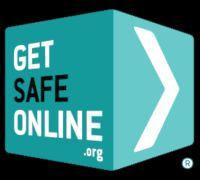Internet safety
When using the internet you are presented with an enormous range of websites, the vast majority of which are perfectly safe. There are some pointers to help you past the ones that aren’t:
- When using a search engine like Google, make sure you know which entries are adverts - usually 'Ads' is shown. They may not be the best site for you but have paid to appear at the top of the list.
- Some sites for common government services - such as passport renewal or international health cards - offer a legal but misleading service where you apply with them and they send the form or details off to the official body, so you pay twice. UK government sites have .gov.uk as part of the web address.
- If you get an email or text offering a tax refund or prize, asking for your bank details or asking you to contact them regarding a parcel you aren’t expecting, check any link carefully - is it the correct firm’s web address or a slightly different one? It there is any doubt contact the firm through their official channels, banks will not ask for your details in this way
The basic principles:
- Do not click on unexpected attachments or suspicious links - you could be downloading a virus
- Check the website is secure if using credit/debit cards or giving out personal information
- If it sounds too good to be true, it probably is
A secure site will start with https not http.

There will also be a solid padlock in the address bar.
If you have any concerns, Action Fraud is the key place to report fraud and Internet crime. Their website has helpsheets and guides on how to protect yourself and what to look for.
They also have a helpline 0300 123 2040 (Open Monday to Friday from 8.00am to 9.00pm and weekends from 9.00am to 5.00pm).
You can check if your email address and password have been part of a data breach or leak by checking HaveIbeenpwned?. If you have, change your password immediately.
Trusting and identifying websites
As anyone can put up a website, its advisable to know how to vet the website to see if its trustworthy. Use the five Ws:
Who?
Do you know who runs the site? Relevant if you want to assess the authority or bias of the site. This does not mean a website done by an individual is bad and one done by an organisation is good, any website is only as good as its creator. You can tell some information by the web address. See also if there is an About Us link.
What?
Is the information accurate? Is it complete? Many people use Wikipedia but that can be easily and anonymously edited (there are stronger controls than earlier). Check alternative websites if unsure.
When?
Is the information up to date? This is relevant if it relates to health, law, statistics and general information. Check if the website has a copyright date.
Where?
Does the information relate to the UK? It’s not always possible to tell where a website originates from. You might want information on UK law, for instance, but find a US site. Check the About Us or if there is a Contact Us link, this may only be an email.
Why?
Is the site commercial or showing bias? The site might be set up to sell a product, cure or to promote a particular point of view - not always visibly. This might be particularly true of adverts in searches.
Get Safe Online

Get Safe Online is a great resource for accessible online safety information to help you feel more confident online.
Their website offers advice about protecting your devices against fraud, viruses and identity theft, along with lots of other online safety issues.
Internet safety for children and young people
These are some sources for keeping children safe online
NSPCC - Talking to your child about Internet safety - Advice on how to start the conversation and get support if you're worried
Internet Matters - supported by UK Internet providers, this site is aimed at parents helping to keep their children and teenagers safe online, at home and in school.
Childnet - Helping make the internet a great and safe place for children and young people. Also has a Star toolkit for 11-16s with special educational needs. For parents to help 3-7 year olds, there are Digiduck stories and materials to support the stories.
Childline - Staying safe online
Cerebra - information for parents of children with learning disabilities or autism on Internet Safety
